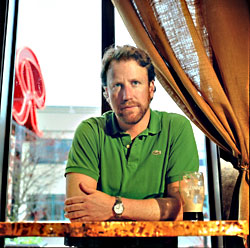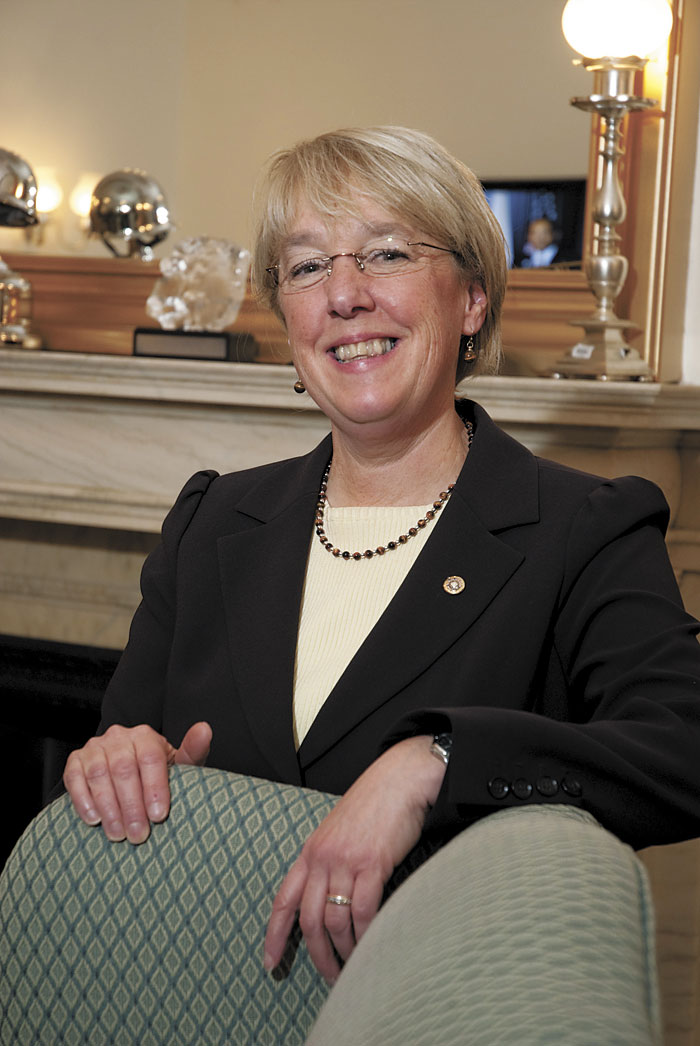The classic bar owners’ catch-22—where reporting trouble might actually get you in trouble—may soon become an even more damned-if-you-do, damned-if-you-don’t proposition.
Thanks to a couple of problem bars in Olympia and a piece of popular state legislation, the Washington State Liquor Control Board could soon give extra credence to the amount of “chronic illegal activity” in and around bars when it comes time for license renewals.
Owners say they’re already wary about dialing 911 when problems arise, for fear of being penalized for it later.
“It goes in the opposite direction of what people want,” says Tim Hatley, the Seattle Music and Nightlife Association’s lobbyist. “People want to be responsible business owners and responsible to the community’s concerns. If that comes back to ding them, it could have a chill on reporting those levels of criminal activity.”
“Public safety is priority No. 1,” says Pete Hanning, owner of the Red Door in Fremont. “Places that take that responsibility to heart and call 911 where there are issues, are they going to be penalized for their diligence?”
The bill (HB 2113), which passed 95-1 in the House and is up for a hearing in the Senate Labor, Commerce, Research & Development Committee this Thursday, would require the liquor board to give extra weight to objections concerning a bar’s liquor license that include allegations of assault, disorderly conduct, and other disturbances.
Seattle Deputy Mayor Tim Ceis says the bill doesn’t conflict with what the mayor’s trying to accomplish with his proposed nightlife ordinance, which requires owners to report trouble. “I realize that people raise that as a problem,” he says. “But we want bar owners to call 911….That shows that a bar owner is being responsible and helping. Just the fact that they’re calling doesn’t mean they’re creating the problem.”
One of the bill’s primary backers, the city of Olympia, makes no bones about why it’s supporting the legislation: It’s tired of baby-sitting a couple of bad bars. One, Bar Code, closed last year amid complaints of rampant DUI citations and a 2004 dance-floor fight that ended in a shooting. The other problem joint, Frankie’s Sports Bar, had its share of trouble and is one of the state’s top DUI-getters.
“If you have a lot of assaults, disturbances, disorderly conduct—in our experience the liquor board refuses, or says it doesn’t have the authority, to take that stuff into account when making licensing decisions,” says Olympia City Attorney Bob Sterbank. “This would not only give them that authority, but give it weight when making decisions.”
But the liquor board already considers criminal activity when issuing and renewing licenses, says its deputy administrative director, Rick Garza. “Maybe there’s a disconnect between the cities and the liquor board that we’re not as zealous as they’d like us to be,” he explains.
Sterbank says the number of 911 calls often reflects the at–mosphere of the establishment. “[Bar owners] have to take a step back and [ask] how can they run their operation so they don’t generate that kind of behavior,” he says. “It’s the kind of behavior that’s occurring in a crowded, alcohol-fueled party atmosphere. If the owner fuels that atmosphere and is going to pack ’em in and put up the drinks, they’re going to have to deal with the consequences.”
“Places that are more popular and have more people are going to have more issues,” counters the Red Door’s Hanning. “It’s difficult to gauge who’s doing a poor job and who’s doing a good job.”
The Washington Restaurant Association is neutral on the bill, in part because they feel the Liquor Control Board is already taking criminal activity into consideration. Plus, says WRA lobbyist Michael Transue, “It would be silly to say, ‘We want you to call the police, and we’ll count it against you.'”
The bill’s sponsor, Rep. Brendan Williams, D-Olympia, says that the liquor board needs added muscle so cities can shutter problem bars.
“The Liquor Control Board has a lot of power,” he says. “We want them to use it responsibly, but also to be more responsive to cities. This would help them to be responsive.” He adds that the bill, by codifying certain practices, would give the board more discretion and leave them less susceptible to lawsuits.
Frankie’s owner, Frank Schnarrs, says he feels unfairly targeted for things that are out of his hands. “Ninety percent of the times when we call the cops, it’s because it’s violent,” he says. “There are gangs. People have warrants out for their arrest. How can we control that?”
Schnarrs, who made headlines last week by filing a lawsuit in Thurston County related to his refusal to abide by the smoking ban, says he’s not going anywhere, new law or no law.
“I’m going to be a public nuisance to the city of Olympia to get rid of me,” he boasts. “I’ve got 12,000 square feet. I’m not the little guy down the street. Sure, I’m going to have more DUIs than anyone else because of my occupancy, but I’ve been here for 15 years.
“All of a sudden the last two years I’m a demon,” he adds. “But I’ve been the same.”






